As the world starts to reawaken from its months of in-house sheltering during the COVID-19 crises, there are calls from around the world for the rebuilding of the economy to be done through a green and sustainable pathway. The lockdown has shown many people just how urgent our sustainability needs are. There are many links drawn between natural habitat destruction, climate change, air pollution and other environmental issues connected to the rise and devastation of a pandemic such as COVID-19. The head of the UN called for a global green recovery, and many governments are seeing the links between the climate and the COVID-19 crises. With recovery talks emerging and governments around the world beginning to propose new budgets, we thought we’d take a look at who is (and who is not) focused on implementing sustainability initiatives in their COVID-19 response and future planning.
Dan Meyers via Unsplash.com
The European Union
Right before this crisis, the EU voted to approve the Green Deal, which sets out ambitious plans for a clean and circular economy that has no new net carbon emissions by 2050. This pandemic has emphasized the urgency of implementing the Paris Agreement, with Germany and the UK collaborating to virtually lead the the 11th Petersberg Climate Dialogue earlier in April, in which they, along with 30 countries, discussed how to begin recovery with the caveat of climate protection being linked to the economic perspective. The EU’s proposed Green Recovery also highlights the need to protect biodiversity and invest in “sustainable mobility, renewable energy, building renovations, research and innovation, and the circular economy.” While there isn’t unanimous agreement among all nations of the EU, there is certainly a majority that are in favor of using the European Green Deal as a framework for recovery, leading to rich discussions and (hopefully) favorable outcomes.
“The restart can lead to a healthier and more resilient world for everyone.” - U.N. Secretary General Antonio Guterres (Source)
As usual, the main pushback against green initiatives is coming from a fiscal perspective (these are the people who created the reductive, linear economy based on the hyper consumption loop, after all). We saw this happen in 2008’s recession as well — carbon dioxide levels drastically dropped and then resurged with a vengeance due to carbon-intensive stimulus spending. As such, hundreds of the world’s top economists have banded together to advise that we learn from the 2008 crisis and choose more wisely this time by investing stimulus spending in climate action, stating that “post-crisis green stimulus can help drive a superior economic recovery.” This resounding call for a green recovery is also heard from the general populace, with over a million EU citizens sharing their support for green investments. Specific countries are also putting in measures such as France offering subsidies for bike repairs to entice people to bike rather than drive.
“The current crisis is a stark reminder of how closely human and planetary health are interlinked - only together can people and nature thrive. A green recovery means restoring nature, protecting our environment, and accelerating the transition to a carbon-neutral and resilient economy. MEPs must lead the way." - Ester Asin, director of the WWF European Policy Office (Source)
Markus Spiske via Unsplash.com
New Zealand
Aside from having the leader many of us want for our own countries in Prime Minister Jacinda Ardern (The Atlantic hailed her as “the world’s most effective leader”), New Zealand has given personhood to a river, prioritized wellness as part of their economy, and now they are looking at ways they can rebuild in a greener and more sustainable way. For example, in the $50B recovery budget that was just proposed, they’ve allocated $1B toward environmental spend, creating 11,000 news jobs, and $430M is included for unemployed people to help clean up rivers and restore wetlands, as well as $300M is being allotted to prevent loss of biodiversity. To further improve energy efficiency, New Zealand is also investing $56M in their heating and insulation program, which simultaneously improves citizens’ health and thus reduces their vulnerabilities to diseases like COVID-19.
Dan Freeman via Unsplash.com
United States
Politics and science continue to be at odds in the US, with environmental science particularly taking a hit since the current administration took office in 2017 and proceeded to withdraw from the Paris Agreement, roll back regulations on emissions in favor of the fossil fuel industry, and aggressively cut trees on public lands, among many other actions that have drastically changed and reduced US environmental policies. A bright spot came about, however, when the Green New Deal was proposed in 2019, led by the popular Democratic representative Alexandria Ocasio-Cortez. While widely rejected at the vote, the Green New Deal continues to be a powerful framework for progressive ideas and is currently being praised by scientists for its relevance to the COVID-19 recovery. While as a whole the US is falling behind on the world stage in this matter, a few progressive states like California are talking about how clean energy jobs can be significant in economic recovery, and thought leaders are at least envisioning what the future of the US could look like with green initiatives in place. For now, it’s still a fantasy, but we remain hopeful.
Researchers from University of Massachusetts working on the potential of growing crops under solar panels panels and the mutual benefits with agriculture (via Unsplash.com).
Asia
China and South Korea are leading the way in investing in sustainable recovery among Asian nations. With a total of $7T pledged as economic stimulus, China is heavily investing in infrastructure for electric vehicles, renewable energy, smart cities and smart grids, and healthier cities via focusing on reducing pollution, implementing stricter emissions standards, improving health facilities, creating more space for exercise, and promoting road safety.
South Korea has emerged as an international leader in pandemic recovery. It became the first country to hold a national election amidst this pandemic, and as a result has championed a 2050 carbon neutrality goal, along with proposals for an impressive green recovery. Publishing a “climate manifesto” and giving nod to the EU’s Green Deal for Europe and the US’s Green New Deal, the plan includes “large-scale investments in renewable energy, the introduction of a carbon tax, the phase-out of domestic and overseas coal financing by public institutions, and the creation of a Regional Energy Transition Centre to support workers transition to green jobs.”
Seoul by Daniel Bernard via Unsplash.com
Canada
While Canada has come under scrutiny for being off course on its Paris Agreement Goals, the pandemic recovery could certainly catalyze more urgent climate action. One such initiative was unveiled in Prime Minister Justin Trudeau’s announcement that corporate relief money will be awarded on the contingency that companies commit to climate action. They’ll be expected to “publish annual reports on climate investments, detailing how they plan to reduce their environmental footprints, and how their operations support the country’s commitments made under the Paris climate agreement.” Other leaders are urging clean energy investments, and Vancouver’s mayor is part of a global task force committed to supporting a recovery that helps the transition to a sustainable, regenerative, low-carbon future.
Ali Tawfiq via Unsplash.com
At the UnSchool, we are deeply committed to creating tools and resources that support the transformation to a sustainable, regenerative and circular economy. We see a strong need for more leadership in companies, governments and many organizations.
So, we are working hard on a series of new online learning systems around executive and business leadership. Over the next few months, we will be unveiling a suite of new tools and learning programs to support the rapid uptake of progressive changes to the way we do business.
Stay tuned to find out more!















